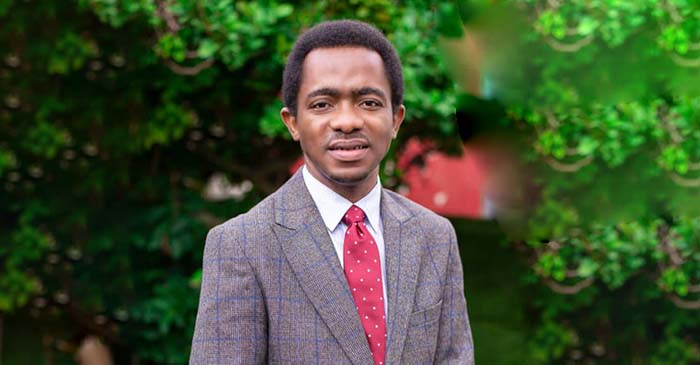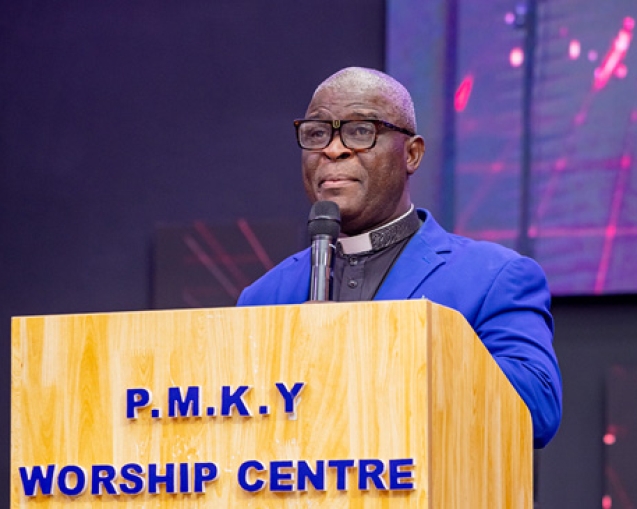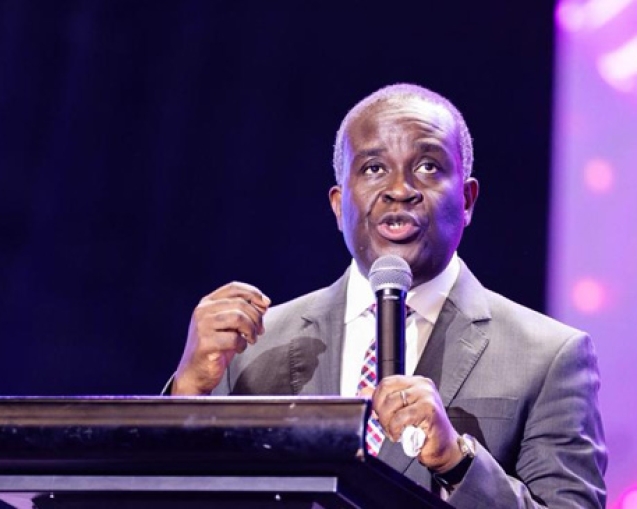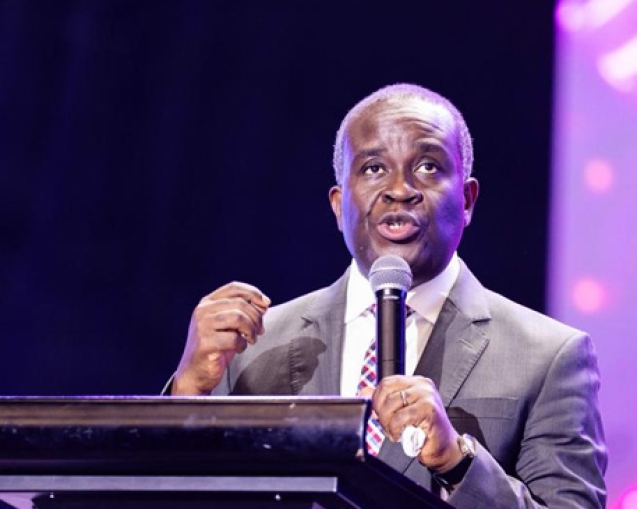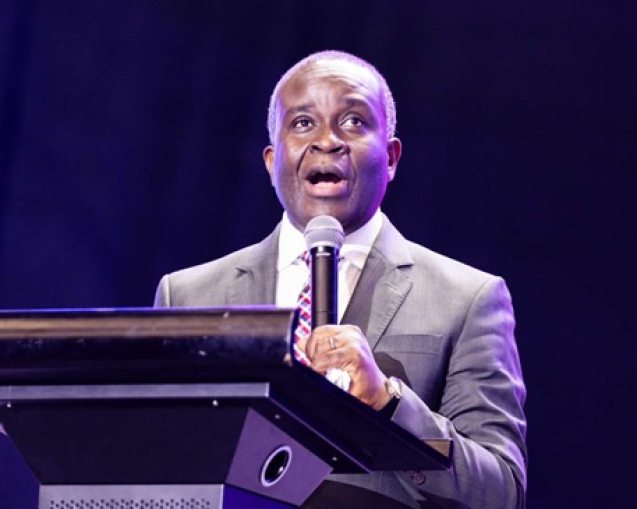INTRODUCTION
Africa has become a hub of Christian vitality today. No one saw it coming. Experts in Christian missions prior to the exponential rise of Christianity in Africa did not see the possibility of this happening even when they met to put their heads together at the end of the first decade of the 20th century. It is a surprising story. Our Lord Jesus Christ desires that His aroma spread everywhere. Meanwhile, flourishing of the Christian faith cannot be said of the Euro-American West today. Consequently, a phenomenon of “reverse mission” emerged characterized, in part, by Africa, which was at the receiving end of the 20th-century Western evangelical Christian mission, now sending missionaries to the West. There has been an increased presence of African-led churches in the West. The West has been in the middle of very renowned revivals that championed the course of Christ. Considering the current nature of Christian vitality in the West, it is fair to say that there is a need for a chain of revivals that will awaken the Christian faith. This time around, African-led revivals must be seriously pursued to the point where indigenes of the West, will come back to their first love, as it were. It is against this backdrop that a global conference dubbed “Pentecost 2024” being organized by the Church of Pentecost, headquartered in Ghana, in Germany from May 15-18, 2024 comes to light. Rudolf Weber Arena of the city of Oberhausen in Germany is the venue for this conference that promises to provoke a great revival. This short article discusses that this conference is an essential instrument that must be critically considered in the quest of African-led churches to rejuvenate the Christian faith in the West.
THINGS FALL APART IN A CHRISTENDOM
After the Day of Pentecost, the work of mission progressed steadily from the city of Jerusalem to other parts of the world at the time. New frontiers were broken with the Christian faith. True to the narrative of Acts 1:8, from Jerusalem, the gospel of Jesus Christ made incursions into other places in the region of Judea and Samaria (Acts 8:4-12). The Acts story indicated that an African has also received the gospel and he went on his way rejoicing (Acts 8:26-39). Luke, the writer of the Acts of the Apostles did excellently in giving an account of this spread of the gospel of Christ.
The Greco-Roman world during the time around the New Testament accounts became impacted by Christianity. Jerusalem, the Christian center at the time gave way to new frontiers. There was a shift of the center of gravity from Palestine to the Greco-Roman world. The early signs of this gradual shift could even be detected in the Acts accounts. The narrative of Acts 15 plays a key role in this happening. By the close of the 1st century, there were more Christians of non-Jewish background than there were Jewish Christians. This impacted the understanding of Christian identity considerably (1 Corinthians 10:32; Galatians 3:28).
Constantine and Theodosius I, former Roman emperors played vital roles in the promotion of Christianity in the known world at the time. A divine encounter the emperor Constantine had, led to his conversion to the Christian faith and eventually caused the acceptance of Christianity as a legal religion of the Roman Empire. Theodosius I declared, officially, Christianity as a state religion thus making Roman Empire Christendom. This animated the emergence of Europa (Europe) as a Christian land so Christianity became the core religion of Europeans. Charlemagne, who later became an emperor of Western Europe played a vital role in the spread of Christianity. The promotion of Christendom started voyages of exploration from the West to the rest of the wider world.
Concerning the great Christian presence in the Western world, things began to fall apart. Diverse factors played out in the sad decline of Christianity in the West. Today, people could make such statements as “God is dead in the West.” Mission belongs to God. The move of the Holy Spirit has defied many predictions concerning the dynamics of the Christian faith around the world. Whilst many think there is no hope for the resurrection of Christianity in the West, the Spirit is moving in the world including the Western world.
WAIT IN THE CITY
From the post-resurrection interaction with his disciples immediately preceding the ascension, Jesus Christ indicates that power is needed in bearing witness of him to the world (Luke 24:46-49; Acts 1:4-9). Arguably, without this power, Christian witness will not thrive. From this story, in a difficult situation of Christian missions, Christians must draw from the instruction of Jesus Christ for his disciples to wait in the city until they are empowered for the task of spreading the gospel. Christians must appreciate that God has made provisions that will enable world evangelization.
Cities, therefore, are strategic centers where revivals can begin and spread to other places. In this time of “reverse mission,” I think cities still offer the opportunity for African-led churches to wait upon God in these places for spiritual awakening that will lead to moving the hearts of people to turn to Christ. From the cities, incursions can be made into the hinterlands.
The cities of the West must be on the drawing board in the work of missions. Cities are defined by a certain worldview and features that make them unique spaces for Christian missions. Nimi Wariboko, the doyen of social ethics, in his book The Charismatic City and the Public Resurgence of Religion: A Pentecostal Social Ethics of Cosmopolitan Urban Life has noted that “a city is a social relation . . . [it] reflects the culture and worldview of the people that creates it.” The people who create cities come from diverse backgrounds and this will reflect in the mosaic of beliefs and attitudes that will characterize cities. In general terms, cities all over the world are regarded as places of delinquency, pollution, with no sense of community, and places where evil has a free course.
Meanwhile, because cities are places that invite persons from diverse walks of life, revivals that happen in those places can cause many people to catch the fire of God and take it to other places. The Church of Pentecost’s plan to meet in the city of Oberhausen in Germany for Pentecost 2024 is important.
PENTECOST CONFERENCE 2024
The Church of Pentecost seems to be aware of the opportunity that Oberhausen, a key German city, offers. The Chairman of the Church of Pentecost, Apostle Eric for instance is of the view that “At no time in history has it been . . . true[r] than now that he who wins the city wins the world.” Arguably, it is the belief that winning the city will lead to having a great positive influence on the world that informed significantly the move to venture into the city of Oberhausen. This conference, according to the Church, will enable winning souls for the Lord Jesus towards multi-racial, multi-national, multi-cultural, and multi-generational churches.
This presents an interesting paradigm, first, for the Church of Pentecost, and then for the entire African-led ministry in the West. This conference is the first of its kind being organized by The Church of Pentecost in the West. Although its ministry outside Ghana, its place of origin, has been progressing, it can be seen that reaching out to indigenes has been difficult, especially in the West. The conference therefore presents an opportunity for a revival to break out and influence indigenes. It will foster important networking that will send the revival that is expected to break out at the Rudolf Weber Arena, which has over 10, 000 sitting capacity, around the world.
Considering the fact this conference is being championed by a church headquartered in Africa in which many people are traveling from different parts of Africa, especially Ghana, and other parts of the world to cause a revival in the West, it is like intentionally transporting a revival. It defines a model that must be explored further in the quest of African-led churches to impact the West with the gospel of the Lord Jesus Christ.
This must become an intentional paradigm that must accompany the work of missions in the West. It has the potency to provoke revival that will awaken Christian spirituality in the Western world.
CONCLUSION
The Spirit is moving around the world. He can venture into contexts, whether religious or secular and provoke a revival that will cause many to yield to the Lord Jesus Christ. No country, regional bloc, or continent must be regarded as impenetrable by the gospel of the Lord Jesus Christ. This is very important. When the Spirit moves, it changes narratives and overthrows predictions. The revival that is expected to break out from the city of Oberhausen can traverse the entire country and spread into other nations, especially in the West. It must be considered as an important model that will aid the “reverse mission.” Let there be a renewal of Christian vitality in the West.
Written by Stephen Ofotsu Ofoe






